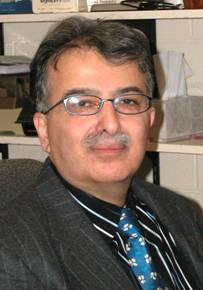Keynote Lecture
IEEE
Information Reuse and Integration Conference,
Las
Vegas
Hilton, July 13, 2008.
Computation
with Imprecise Probabilities
Lotfi
A. Zadeh
Abstract
Computation
with imprecise probabilities is not an academic exercise—it is a bridge to
reality. In the real world, imprecision of probabilities is the norm
rather than exception.
In large measure, real-world
probabilities are perceptions of likelihood.
Perceptions are intrinsically
imprecise. Imprecision of perceptions entails imprecision of
probabilities.
In
applications of probability theory it is a common practice to ignore
imprecision of probabilities and treat imprecise probabilities as if they
were precise. A problem with this
practice is that it leads to results whose validity is open to question.
Publication of Peter Walley's seminal work “Statistical Reasoning with Imprecise Probabilities,” in l99l, sparked a rapid growth of interest in imprecise probabilities. Today, there is a substantive literature. The approach described in this lecture is a radical departure from the mainstream. First, imprecise probabilities are dealt with not in isolation, as in the mainstream literature, but in an environment of imprecise events, imprecise relations and imprecise constraints. Second, imprecise probability distributions are assumed to be described in a natural language. The approach is based on the formalism of
Computing with Words (CW) (Zadeh 1999, 2006).In
the CW-based approach, the first step involves precisiation of information
described in natural language. Precisiation is achieved through
representation of the meaning of a proposition,
p, as a generalized constraint.
A generalized constraint if an
expression of the form X isr
R , where X is the
constrained variable, R is a
constraining relation and r is
an indexical variable which defines the modality of the constraint, that is,
its semantics. The primary constraints are possibilistic, probabilistic
and veristic. Computation follows precisiation.
In the CW-based approach the
objects of computation are generalized constraints.
The CW-based approach to computation with imprecise probabilities enhances the ability of probability theory to deal with problems in fields such as economics, operations research, decision sciences, theory of evidence, analysis of causality and diagnostics.
Professor Lotfi A. Zadeh
Lotfi A. Zadeh
, Professor in the Graduate School, Computer Science Division, Department of Electrical Engineering and Computer Sciences, University of California, USA.
Professor in the
Department of Electrical Engineering and Computer Sciences
Director,
Keynote Lecture
IEEE
Information Reuse and Integration Conference,
Las Vegas
Hilton, July 13, 2008
Inventing the Future of Neurology: Integrated
Wavelet-Chaos-Neural Network Models for Knowledge Discovery and Automated
EEG-Based Diagnosis of Neurological Disorders
Hojjat
Adeli
Abba
G. Liechtenstein Professor
The
The author has been advancing a
multi-paradigm integrated approach for solution of complicated and
intractable dynamic pattern recognition problems. The focus of this
keynote lecture is data mining and knowledge discovery from time-series
signals obtained from complex phenomena. Novel wavelet-chaos-neural
network models are presented for signal processing of brain waves as
recorded by electroencephalographs (EEGs) for automated EEG-based
diagnosis of neurological disorders such as epilepsy and the Alzheimer’s
disease (AD). Through extensive parametric studies and information reuse
and integration certain combinations of parameters from the EEG sub-bands
were discovered to be effective markers for seizure detection and epilepsy
diagnosis. The model can distinguish among healthy, interictal, and ictal
EEGs with a high accuracy of more than
96% substantially better than practicing neurologists and epileptologists. The
extension the methodology for early onset diagnosis of the AD will be
delineated.
 Hojjat Adeli is Professor in the
Departments of Civil and Environmental Engineering and Geodetic
Science, Biomedical Engineering, Biomedical
Informatics, Electrical and Computer Engineering, Neuroscience,
Neurological Surgery, and the Interdisciplinary Biophysics Graduate
Program at The Ohio State University (OSU). He received his Ph.D. from
Hojjat Adeli is Professor in the
Departments of Civil and Environmental Engineering and Geodetic
Science, Biomedical Engineering, Biomedical
Informatics, Electrical and Computer Engineering, Neuroscience,
Neurological Surgery, and the Interdisciplinary Biophysics Graduate
Program at The Ohio State University (OSU). He received his Ph.D. from